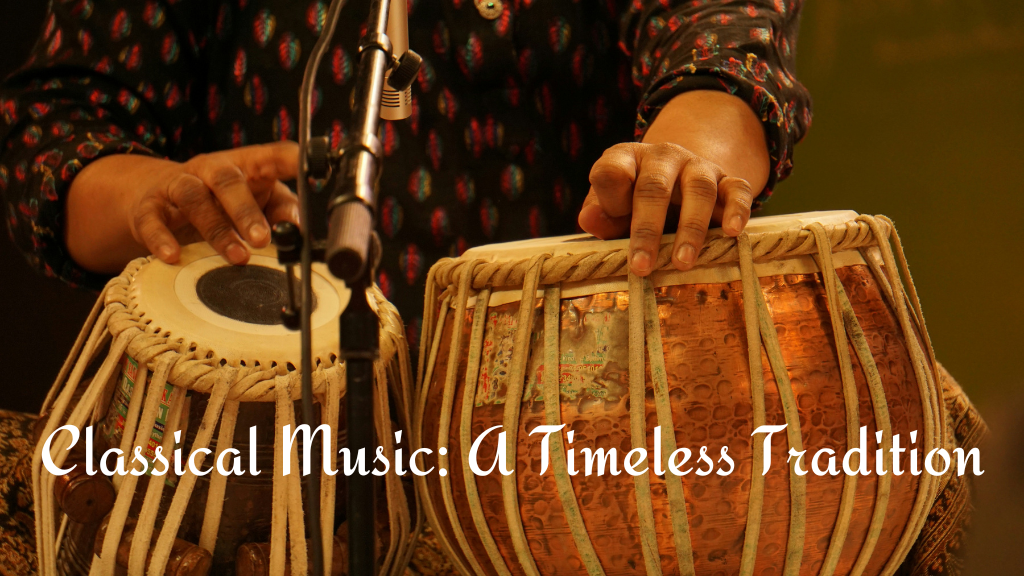Classical music is not just a genre, it’s a living tradition that has transcended time, culture, and geography. It has been handed down from one generation to the next throughout millennia, changing and adapting yet keeping its essential nature. With its emotional depth and intellectual complexity, this eternal art form links generations and enriches lives from the complex ragas of Indian classical music to the symphonic masterpieces of Western classical music. Classical music is evidence of human inventiveness, discipline, and the force of legacy in a society of always shifting trends.
Classical music is a special chance for families to unite around common events, therefore promoting continuity and generational connection. Classical music connects cultural legacy with contemporary sensibilities, whether it’s a parent introducing their child to Beethoven’s symphonies or a grandparent passing on their knowledge of ragas to a grandson.
Preserving Tradition Through Generational Learning
The capacity of classical music to be passed on from one generation to the next is among its most appealing features. Learning and teaching have frequently been a close, one-on-one experience in both Western and Indian classical music traditions. This is observed in India under the guru-shishya parampara (teacher-disciple tradition), whereby knowledge is passed down through personal instruction, generally from parent to child or guru to student. This custom guarantees that classical music not only endures but also thrives, keeping its real character even in contemporary society.
Likewise, Western classical music has stayed true through conservatories, orchestras, and specialized music institutions where information is passed on from expert players to students. Children exposed to families with a history of musicianship early on learn from the great composers how to understand and play works that have endured centuries. These behaviors build accountability in passing the tradition of music along, therefore strengthening the close relationship between the generations.
The Role of Music in Cultural Identity
Maintaining and honoring cultural identification also depends much on classical music. For many families, especially those with roots in a certain musical tradition-classical music is a direct link to their past. It reminds us of who they are, where they come from, and the values handed down over many years.
In Indian classical music, for example, the raga system is intimately related to spirituality, time, and environment. Learning these complex ragas helps children to absorb cultural values and ideas that have molded the Indian way of life for millennia in addition to music. In Western classical music, similarly, youngsters are exposed to the works of composers who molded Western history, figures like Bach, Mozart, and Beethoven, whose works still affect modern performers and audiences.
Classical music becomes an anchor for families that have moved or established abroad, a means of keeping connections to their cultural background. Classical music offers a sense of continuity whether it’s for a European family in Australia or a South Asian family in the United States, thus enabling newer generations to grasp and value the cultural legacy their parents or grandparents have carried with them.
Classical Music in the Modern Era
Although classical music has a lengthy history, it has changed with the ages to fit fresh technologies, inventions, and social developments. Modern classical performers frequently combine aspects of other genres to produce fusion compositions bridging the distance between conventional and modern sounds. This adaptation does not mean, then, that classical music loses its core. Rather, it shows how dynamically relevant it is, therefore transcending generations.
Younger generations find classical music more easily available thanks to technology than ever before. Children and parents can investigate classical music at their own speed by means of streaming platforms, online music classes, and digital tools, therefore enabling connections with compositions from many eras and regions. Classical music has been brought into homes of families who might not have had access to live events or music teachers in the past by this digital era, therefore extending its reach while maintaining its traditional foundations.
Music as a Bridge Between Generations
The potential of classical music to link individuals throughout time and space defines its beauty. Many homes convey musical legacies through storytelling and shared recollections in addition to official instruction. Classical music pulls families closer in many ways: grandparents sharing with their grandkids the music they grew up listening to, parents remembering their early musical experiences, and siblings bonding over beloved pieces.
One amazing illustration of this is the life of the renowned sitar player Ravi Shankar, whose impact on classical music went across decades. Many of his pupils, who went on to become well-known musicians themselves, still teach and play his works, guaranteeing that his legacy endures. Likewise in Western classical music, families of performers such as the Bach family or the Strauss family have made sure that the creations of earlier generations inspire and instruct next generations.
Conclusion: A Legacy That Endures
Classical music is a living legacy that still speaks to people of many generations, not only a kind of art. Families may deepen their ties, protect cultural legacy, and create lifelong memories by realizing the ability of music to link, educate, and inspire. Learning to play an instrument, seeing a live performance, or just sharing a favorite piece of music, classical music provides an everlasting link between the past and the present that enhances the life of every person who interacts with it.
Looking forward, the ageless legacy of classical music will surely be a source of delight, education, and connection for next generations. Classical music is a constant in an always shifting environment; it is a gift handed down from one generation to the next that guarantees the cultural and emotional legacy of the past never disappears.

